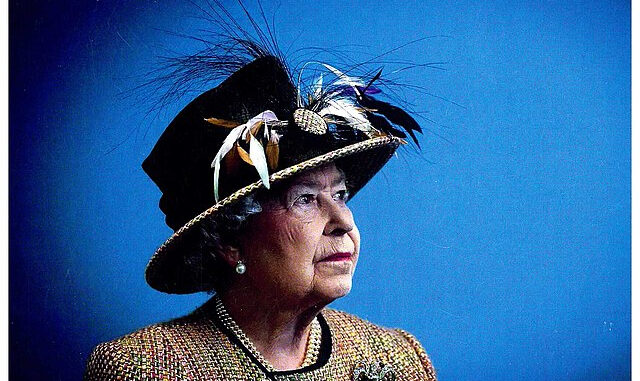
Emily Theroux | Staff Writer
Sept. 15, 2022
Tragedy, as a concept, is often linked to the subjects of mourning where one is overcome with sorrow, or the state of reflection that exists to compensate for the hollowness that crashes in after a loss.
On Sept. 8, the entire world experienced something that fits the description of a tragedy when Queen Elizabeth II passed away at the age of 96. The predictable declarations of veneration and reminiscence outpoured from prominent figures like Barack and Michelle Obama, Janet Jackson and Elton John. The overarching tone exhibited from the American public was not very reverent. Usually, tragedy breeds sorrow. In the case of the queen’s death, however, tragedy bred comedy and a severe lack of empathy.
If you were to look into the online sphere following the queen’s passing, you might be eligible for financial compensation for the neck injuries sustained due to the whiplash of content displayed.
There are those who expressed their sadness, and there are those who simply sat in awe of the queen’s unprecedented 70-year reign. She was the United Kingdom’s longest-reigning monarch and the second-longest reigning monarch in the world, as well as the last head of state who served during World War II. During her lifetime, many significant moments in history occurred; DNA’s double helix was discovered, the first organ transplant occurred and Neil Armstrong walked on the moon.
Despite the shock that resulted in remembrance of the queen, some extended their criticism of her decisions and character, thus putting forth the notion that some should be held accountable for pain caused despite no longer being able to apologize. Uju Anya, a professor at Carnegie Mellon University, tweeted that she hoped the monarch’s pain would be “excruciating” because Elizabeth was in power when Great Britain overtly supported a violent Nigerian civil war. Anya’s birthplace is Enugu State, Nigeria.
Her tweet was undoubtedly vulgar, but it still contains genuine criticism that reflects the actions of the late queen. It is not exactly a mockery of the tragedy, but rather a reminder that, although the queen was an immediate member of modern history, she was not a perfect monarch and caused pain to further the U.K.’s agenda.
There has been praise, reflection and critique of the queen’s passing.
However, there is a disturbing aspect of the public outcry to her death: memes.
Many have taken a rather-insensitive comedic approach to discussing the queen’s passing, which highlights a problematic pattern in modern culture when it comes to social media platforms. Despite many of these jokes resulting in a surprised chuckle or a quick like, they take away from the gravity of the situation that is being ignored for a cheap laugh.
While there is much to criticize about the queen, let it not be lost that she was a monumental part of the U.K. ‘s history, starting at the age of 25.
Regardless of whether you agreed with her policies, her decisions or her general demeanor, the queen was a woman who was thrust into power, and was a part of a family who is currently grieving both publicly and privately.
The Twitter campaign of memes that rehash the queen’s relationship with Princess Diana, emphasize poorly taken pictures of her or simply mock the fact that she has died add nothing to the narrative of her reign.
All that happens when a tragedy is mocked by the masses is further proof that human society is regressing in the manner of respect.
It is perfectly reasonable to share a critique of the late queen, even in a harsh manner, for her various actions that have caused other deaths, pain and suffering. Conversely, it is fair to remark on positive experiences with the queen and the achievements made during her reign. Public response is never polarized to a singular stance, and that is okay.
Public discourse is the aftermath of opinion and tragedy, which can be interpreted in hundreds of different lights to serve a thousand different agendas. That is human nature.
The queen’s death has been met by mourning, reverence, criticism and a lack of decorum.
The barriers that used to govern public mannerisms have become bendable to the point of breaking since the invention of social media.
Everyone can have a platform without attaching their name to it.
There is no sense of accountability to fully stand behind what you’re posting.
Because of this, we’re all becoming desensitized to tragedies and losing the essence of respectable and argument.
